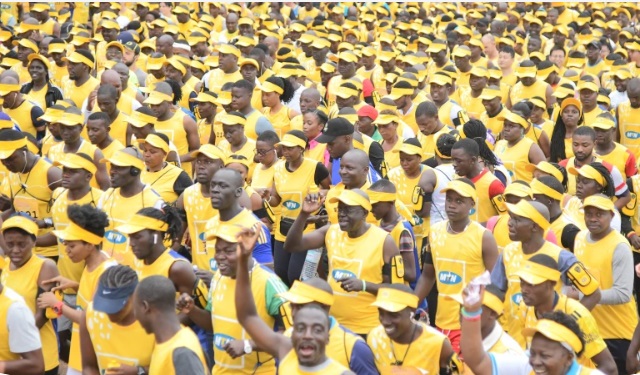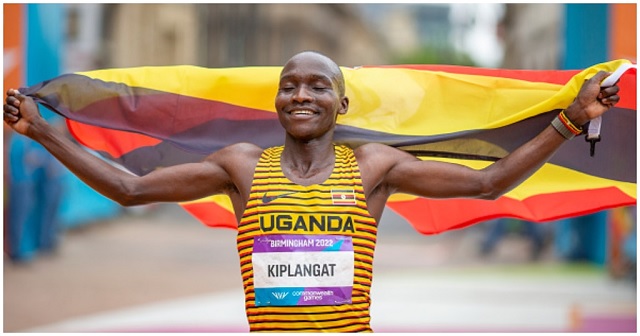
Kampala, Uganda | THE INDEPENDENT | The MTN Kampala Marathon is one of the most famous races attracting thousands of participants across East Africa. On November 20, as many as 20,000 runners will head to Kololo Independence Grounds again. From there, some will run or jog a maximum of 42 kilometres of the marathon on the city roads.
This will be the 17th edition of the MTN Kampala Marathon following a two-year break due to the coronavirus pandemic. And, whereas the marathon is celebrated for its charity, it has also provided a platform for talent identification for aspiring athletes so much so that Uganda is emerging as a strong competitor in athletics on the international stage, taking on Kenya and Ethiopia which have dominated the marathons for decades in East Africa.
Uganda Athletics Federation president, Dominic Otuchet, said in an interview that MTN Kampala Marathon has enabled local aspiring athletes to not only test themselves beside the elite athletes but also provided them with exposure to stakeholders in athletics to boost their chances to participate in international marathons.
“As it has been in the past, we are hoping that this marathon will see some of our aspiring athletes get signings with international managers interested to promote their sport on the international scene,” he said.
“And, it is for that reason that we normally invite international athletes to participate in the MTN Kampala Marathon to raise its profile and competition. We usually want to ensure that our athletes get a new challenge and train hard.”
Otuchet said this year’s MTN Kampala Marathon is expected to involve elite athletes from neighboring countries including Kenya and Ethiopia.
“I, therefore, call upon aspiring athletes to compete in this race. Most of our international medalists were identified and nurtured through this marathon,” he said.
He cites Dorcus Inzikuri, Bonface Kiprop, Stella Chesang, Mercyline Chalangat, Stephen Kiprotich, Jacob Kiplimo, and Victor Kiplangat, among others, who have gained strong attention in athletic circles.
Dorcus Inzikuru participated in the inaugural MTN Kampala Marathon in 2004 and later won a gold medal in the women’s steeplechase during the World Championship in Helsinki, Finland in 2005. She had another spectacular performance in the Commonwealth Games in 2006 in Melbourne scooping a gold medal beside Bonface Kiprop.
Moses Kipsiro, a double gold medalist at the 2010 Commonwealth Games in New Delhi, India, tested his talent during the MTN Kampala Marathon in 2008.
Similarly, Stephen Kiprotich tested his running pace during the MTN Kampala Marathon in 2010 before going on to win at the 2012 London Summer Olympics. He became the second Ugandan to win Olympic Gold after John AKII-Bua in 1972.
Stella Chesang and Victor Kiplangat, too, had their talent identified during the MTN Kampala Marathon and are now world champions in athletics.
Chesang participated in the MTN Kampala Marathon in 2014 and in 2018 won a gold medal at the Commonwealth Games in Gold Coast, Queensland, Australia.
Kiplangat, who participated in the 2015 MTN Kampala Marathon, won a gold medal in the men’s marathon in the recently concluded Commonwealth Games at Smithfield in Birmingham, United Kingdom.

Commenting on the upcoming marathon, Kiplangat said it is a perfect opportunity for aspiring athletes to test their fitness.
“It is the MTN Kampala Marathon that made some of us,” he said. “I am encouraging aspiring athletes to come and run like 10kms, then, they can upgrade to half marathon and finally full marathon.”
Rhona Arinaitwe, Public Relations Manager at MTN Uganda Foundation said MTN is proud to be associated with the Federation for nurturing the country’s athletic talent.
“We are so glad for the transformations so far recorded as a result of the marathon and we remain committed to providing any necessary support towards the success of Ugandan athletes,” she said.
MTN Uganda started the MTN Kampala Marathon in 2004 to raise funds for various causes including helping expectant mothers with maternity kits, resettling people displaced by war in northern Uganda, delivering clean water and improving sanitation in communities and schools, and improving maternal health facilities.
 The Independent Uganda: You get the Truth we Pay the Price
The Independent Uganda: You get the Truth we Pay the Price



